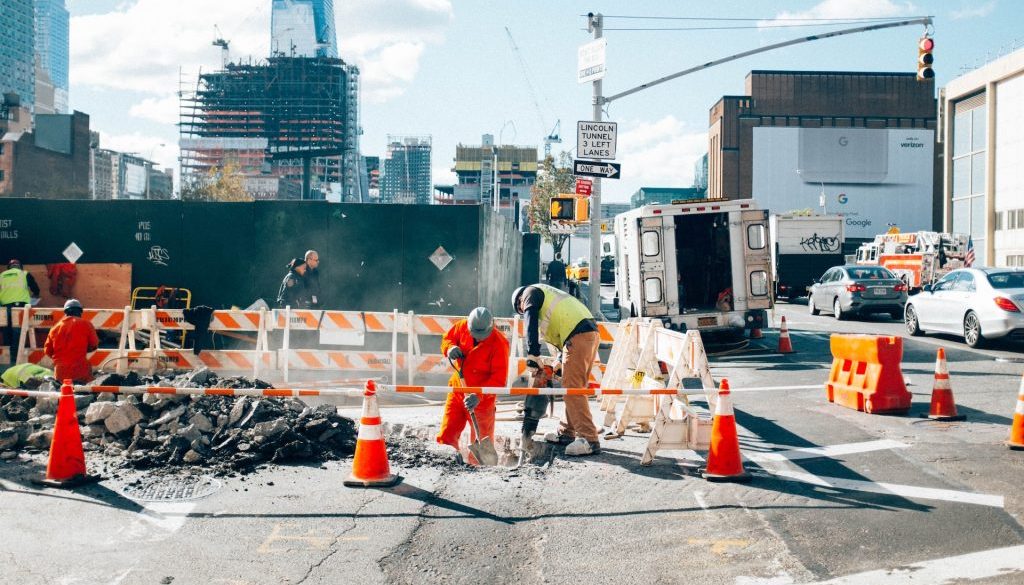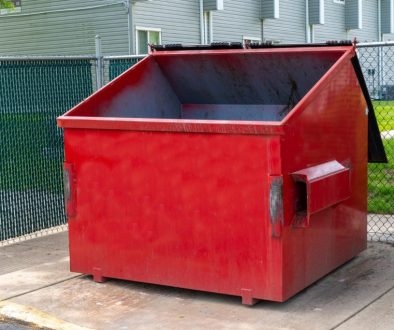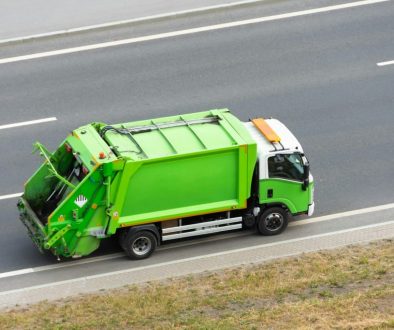Construction sites are known for producing a large amount of waste and debris, which can come from various sources such as demolition, excavation, and construction activities. With the growing concern for sustainability and the environment, rubbish disposal at construction sites has become a significant issue. If not properly managed, construction waste can lead to environmental degradation, pollution, and hazards to human health.
The UK government has implemented strict regulations and guidelines to ensure the proper management and disposal of waste at construction sites. It is the responsibility of the contractors, builders, and construction workers to adhere to these regulations and take necessary measures to dispose of waste effectively.
In this article, we will discuss different ways of disposing of rubbish at construction sites. We will also explore the different types of waste materials to dispose of and some tips to reduce the rubbish produced during construction.
Types of Construction Waste Materials You Can Dispose
- Concrete and Bricks: These materials are commonly found at construction sites and can be recycled into new materials.
- Wood: Wood waste can be recycled into new building materials, such as particleboard or wood chips for mulch.
- Metal: Scrap metal can be recycled into new metal products, reducing the need for mining and manufacturing.
- Plastics: Plastic waste can be recycled into new products, including plastic decking, which can be used in construction.
- Glass: Glass waste can be recycled into new glass products, reducing the need for new raw materials.
Ways of Disposing Rubbish at Construction Sites
1. Recycling
Recycling is one of the most effective ways of disposing of rubbish at construction sites. It involves separating waste materials into different categories, such as metal, plastic, wood, and concrete. Once separated, these materials can be repurposed for other uses, reducing the amount of waste that ends up in landfills.
To encourage recycling at construction sites, contractors should provide separate bins for different types of waste. These bins should be labelled clearly, making it easy for workers to dispose of waste in the correct bin. Contractors can also place signs around the site, reminding workers of the importance of recycling.
2. Reuse
Another effective way of disposing of rubbish at construction sites is by reusing materials. Many materials used in construction can be reused, such as concrete, bricks, and wood. Before disposing of any materials, contractors should assess if they can be reused on the site or donated to other construction projects.
Reusing materials not only reduces waste but also saves money. Contractors can avoid the cost of purchasing new materials by reusing what they already have. Additionally, reusing materials reduces the environmental impact of construction activities by lessening the need for new materials.
3. Landfill
If recycling and reusing are not possible, landfill is the next potential option for disposing of rubbish at construction sites, however, it is not the most environmentally friendly option and should only be used as a last resort. To reduce the amount of waste that ends up in landfills, contractors should implement waste reduction strategies. For example, contractors can reduce packaging waste by purchasing materials in bulk or using reusable packaging. Additionally, they can avoid over-ordering materials, reducing the amount of waste produced.
4. Hazardous Waste Disposal
Hazardous waste is a significant concern at construction sites, as it can pose a risk to human health and the environment. It includes materials such as asbestos, lead, and chemicals. Disposing of hazardous waste requires special procedures to ensure the safety of workers and the environment.
Contractors should identify hazardous materials on the site and implement procedures for their safe disposal. Hazardous waste should be stored separately from other waste materials and disposed of at designated hazardous waste disposal facilities.
5. Donations
Another option for disposing of rubbish at construction sites is through donations. Many materials used in construction can be donated to community organisations or charities. For example, wood and metal can be donated to local schools or community centres for use in art projects or repairs.
Donating materials not only reduces waste but also benefits the community. Contractors should identify local organisations that accept donations and provide workers with information on how to donate materials.
Tips for Reducing Your Construction Waste
- Plan ahead: Before starting a project, create a waste management plan that includes reducing, reusing, and recycling materials.
- Use sustainable materials: Choose eco-friendly, durable, and recyclable materials.
- Use prefabricated materials: Prefabricated materials produce less waste and are often more efficient to install.
- Train workers: Train workers on proper waste management practices, including sorting and disposing of materials.
- Monitor waste: Regularly monitor waste levels to identify areas where waste can be reduced further.
- Donate materials: Donate materials that can be reused to community organisations or charities.
- Partner with waste management companies: Look for waste management companies that offer recycling and waste reduction services.
- Use digital tools: Use digital tools to reduce paper waste, such as electronic drawings and invoices.
- Compost organic waste: Compost organic waste, such as food scraps and landscaping waste, to reduce landfill waste.
- Implement a waste reduction policy: Implement a waste reduction policy that outlines goals, targets, and strategies for reducing waste.
Conclusion
There are many ways to reduce waste in the workplace. By implementing practices such as recycling, reducing paper usage, and composting organic waste, businesses can help protect the environment while saving money. It is essential for companies to prioritise waste reduction and implement policies and procedures to ensure that waste reduction practices are consistently followed. Together, we can work towards a more sustainable future.
Make managing and disposing of rubbish at construction sites with skip hire from Enviro Skip Hire. We are a family-run skip hire and aggregate company servicing Staffordshire. Check out our wide range of skip sizes and aggregates.




